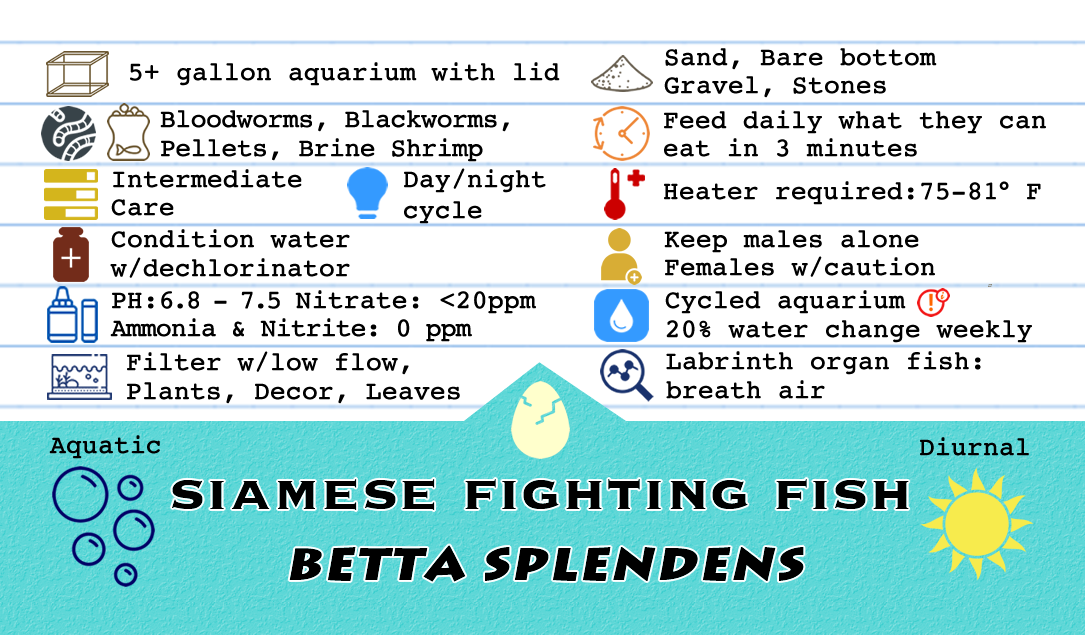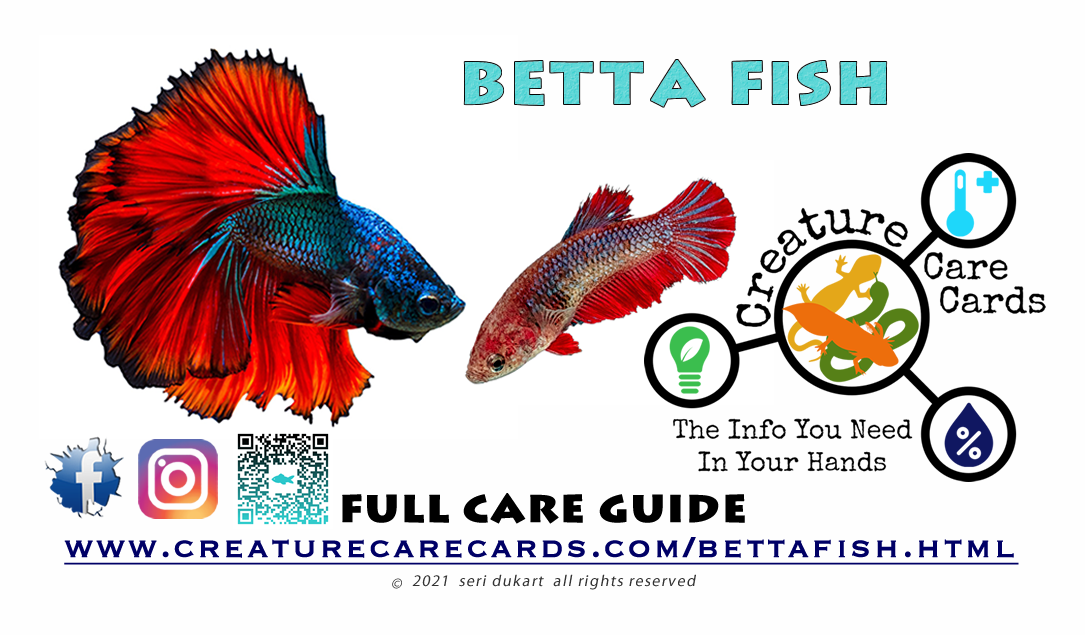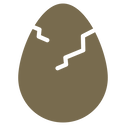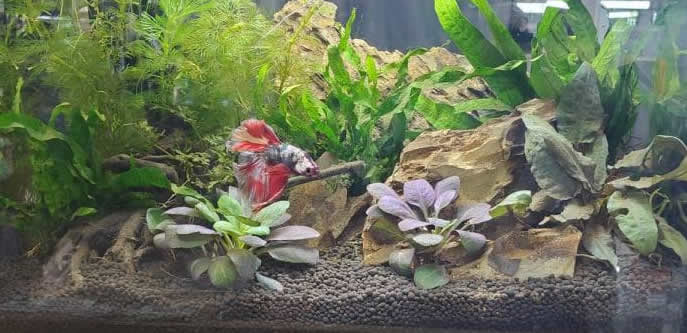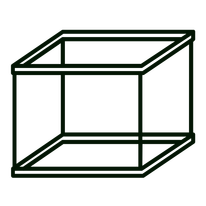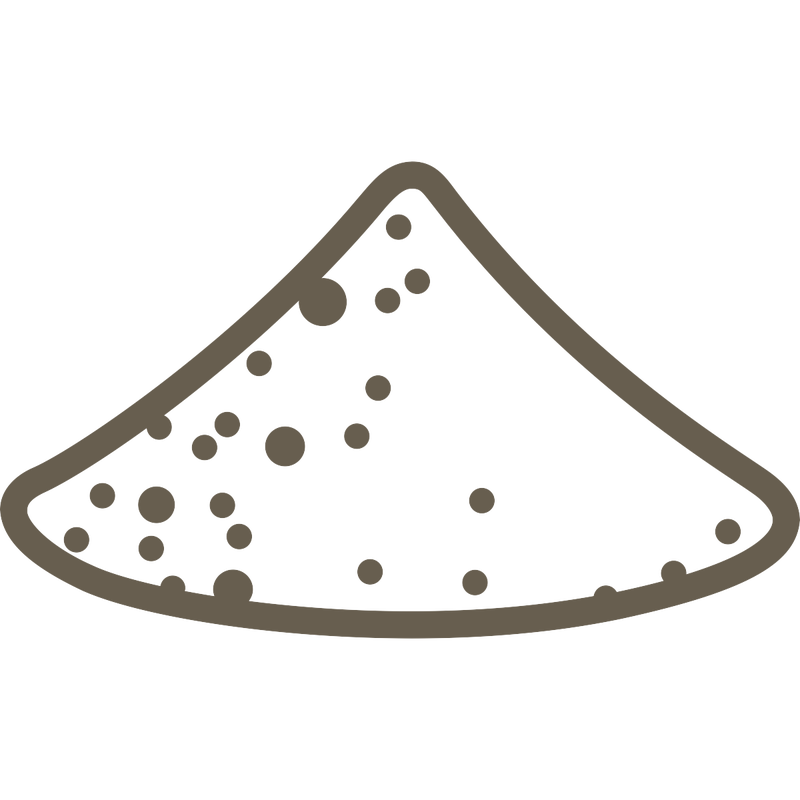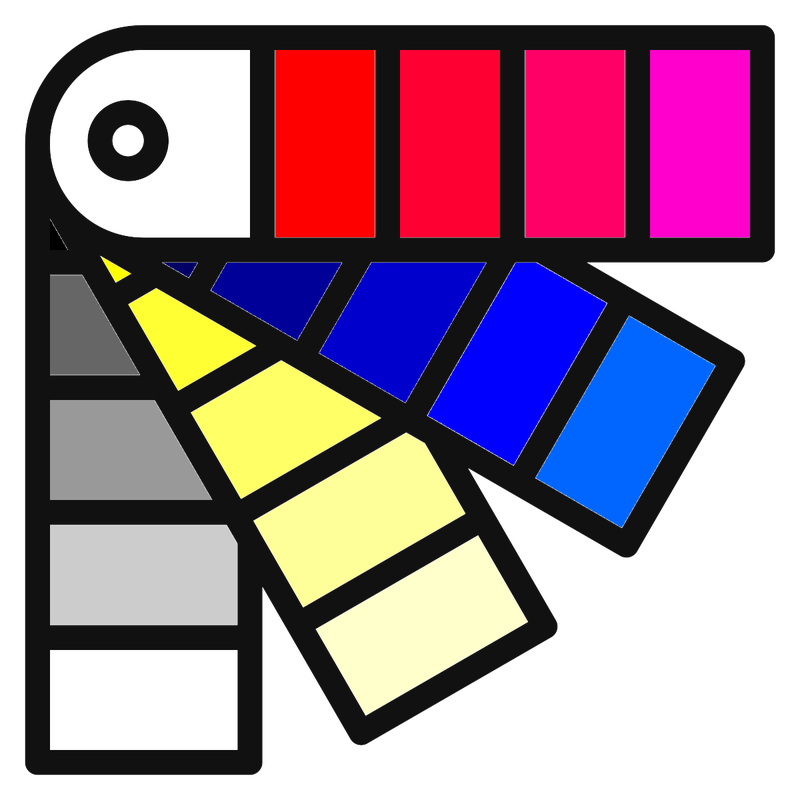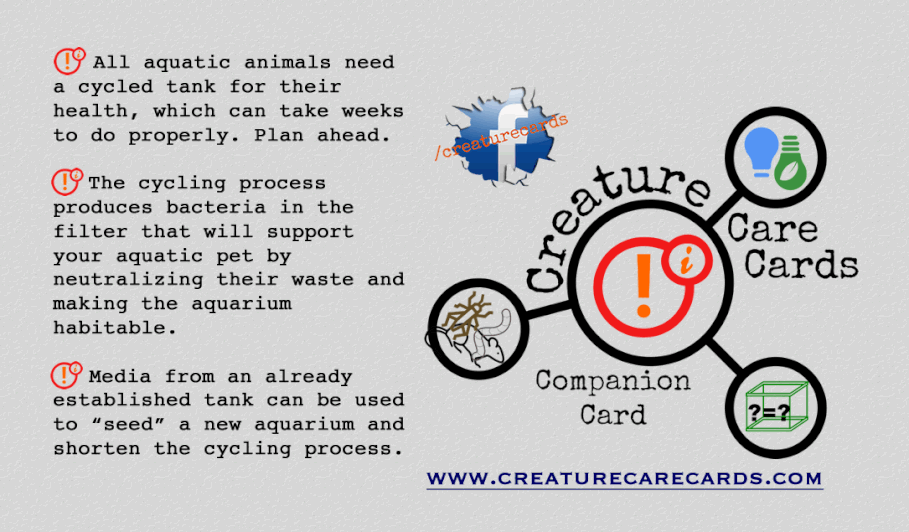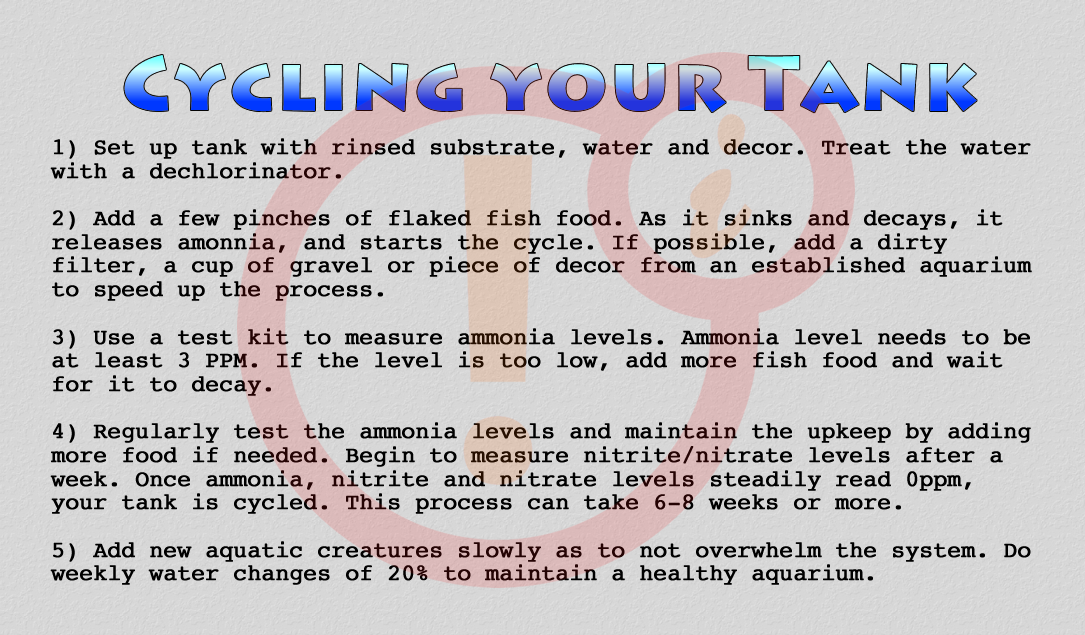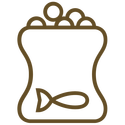Betta splendens
Bettas, or "Siamese Fighting Fish" are a freshwater fish of the gourami fish family. Their labyrinth organ allows them to breath air because their gills cannot always take in enough oxygen from the water. They are native to Asia and live in shallow water of marshes, ponds or slow-moving streams. They come in many colors and fin types and are known for their aggressive nature towards others of their kind.
|
Enclosure Adults grow to be around 1-5". While it is commonly believed these fish can easily be kept in small bowls, Bettas require at least 3-5 gallons of aquarium space to thrive and more is always better. Bettas can be great jumpers - be sure to provide a lid, but leave a half inch gap between the lid and the surface of the water so they can come up for air. Breeders and pet stores often display bettas in small bowls simply because they lack space to allow for proper setups for every fish. However, the long term goal for the fish should be a set up they can thrive in. Like all aquatic species, bettas require pristine water conditions. Make sure your tank is completely cycled before bringing home your new betta. More information on cycling an aquarium can be found here.
|
|
Substrate
A variety of substrates can be used your betta tank, including none at all. Bare bottom tanks are easiest to clean, but not as visually pleasing. Gravel, sand, and smooth stone are all acceptable substrates for your betta tank. Avoid aragonite sand as it will increase the PH, GH and KH of your water. Specific substrates for live plants can be used as well to help your plants flourish. |
|
Heating and Filtration Bettas do need heat to thrive. An aquarium heater is required for proper keeping. Temperatures can range from 75 - 81 degrees F. Be sure your heater is rated to the size of your aquarium. Betta aquariums need a filter to maintain a healthy nitrogen cycle. Be sure the water flow on your chosen filter is low as betta fins can be torn or shredded by high water flow and they will be less active. Without a filter, your fish will be constantly exposed to ammonia from its own waste and be much more vulnerable to disease, which are almost always linked to poor water quality. While they can survive without heat, filtration and adequate room for a period of time, this is not an acceptable long term solution for a betta. Do not fall prey to the misconception that betta fish have few needs. Having a filter does not mean you do not need to do weekly water changes. Water changes of 10-20% help remove the build up of waste in the tank and keep your water quality in the acceptable range. |
|
Lighting
Bettas naturally live in murky lakes and do not like high light conditions. If you keep a light on the tank, use a low watt bulb and provide lots of floating plant coverage to block the light. Natural room or day light is more than enough. Be sure if you have a light to keep it on a timer and provide a natural day and night cycle. If you have a planted tank that requires higher lighting, the addition of floating plants is a great way to help cut down on excess light and allow your betta something to rest in. |
|
Aquarium Decor
Bettas are very suited to live planted tanks and love to hang in floating plants or leaves. Fake plastic plants provide nice decor as well. Be sure to rinse off all decor well before placing in the tank. Provide an assortment of decor items for enrichment. Check that any hides or decorations do not have holes they can get stuck in, as they are curious creatures. Betta hammock leaves are a favorite for bettas to rest on. |

Indian Almond Leaves are highly recommended for betta tanks. They leach helpful compounds into the water that help lower the PH, and have anti-inflammatory and antioxidant properties as well as other benefits. Your betta will also love to lay on them and build bubble nests under them! 1 leaf to every 1-2 gallons is recommended. Do not be concerned if the water is slightly tinted from the tannins in the leaves.
|
|
Water
Water quality is very important for betta fish. Weekly water changes of 10% - 20% should be done to ensure high water quality. Be sure to use a water conditioner to remove chlorine and contaminates from the water. A freshwater testing kit can be used to test the water to be sure levels stay safe for your betta, or take a sample to your local fish store for testing. Avoid test strips, as they are highly inaccurate. Your water conditions should test within the parameters below: PH: 6.5 - 7.5 with 7.0 being an ideal PH level Nitrate: under 20 ppm (parts per million) Nitrite and Ammonia: 0 ppm KH: 3-5 dKH (53.6 - 89.4 ppm) GH: 3-4 dGH (50-66.7 ppm) |
|
Feeding Variety is the key to a healthy betta. Feed frozen bloodworms, brine shrimp, live blackworms, flake food and pellets. Pellets are considered a staple diet. Feed daily or twice a day, sparingly. Only feed your fish as much as they can consume in 3 minutes to avoid uneaten food settling in the substrate and soiling the water. Bettas are slow eaters, so enjoy this time to observe your fish and feed them a bit at a time to avoid uneaten food settling on the bottom. |
|
Lifespan & Size
Bettas live on average of 3-5 years with proper care. They grow 1-5.5 inches as adults depending on what breed they are. Females are easily identifiable from males as they have shorter fins and stouter bodies with a smaller beard. Their colors tend to be duller than males, although they still sport very beautiful colors. Females have an egg spot between the ventral and anal fins. |
|
Shopping List
*optional |
